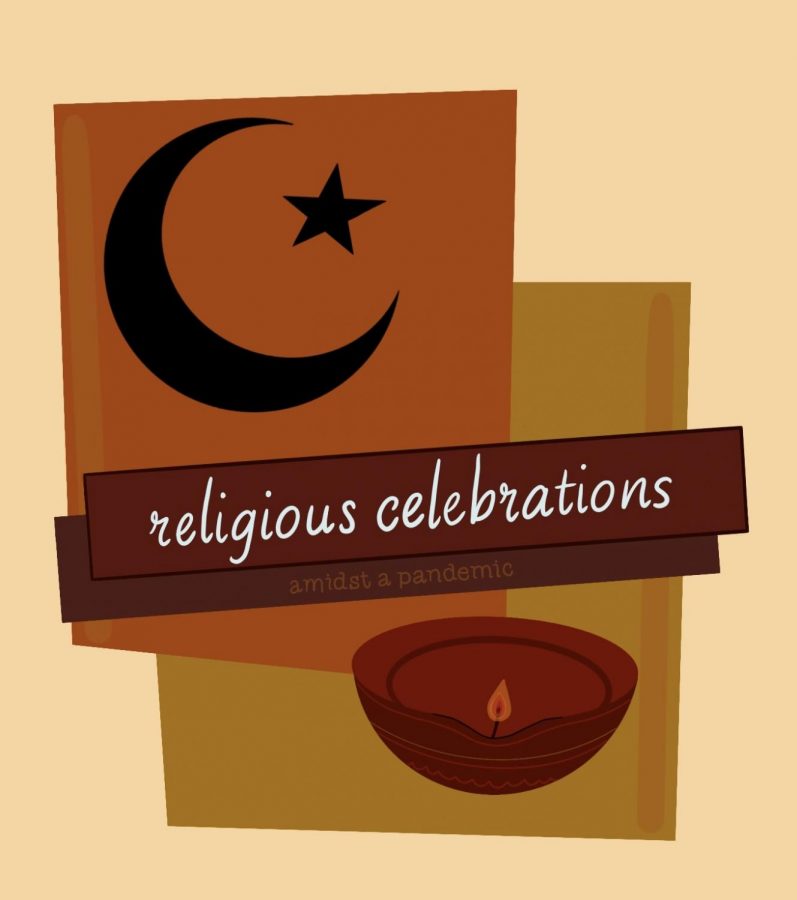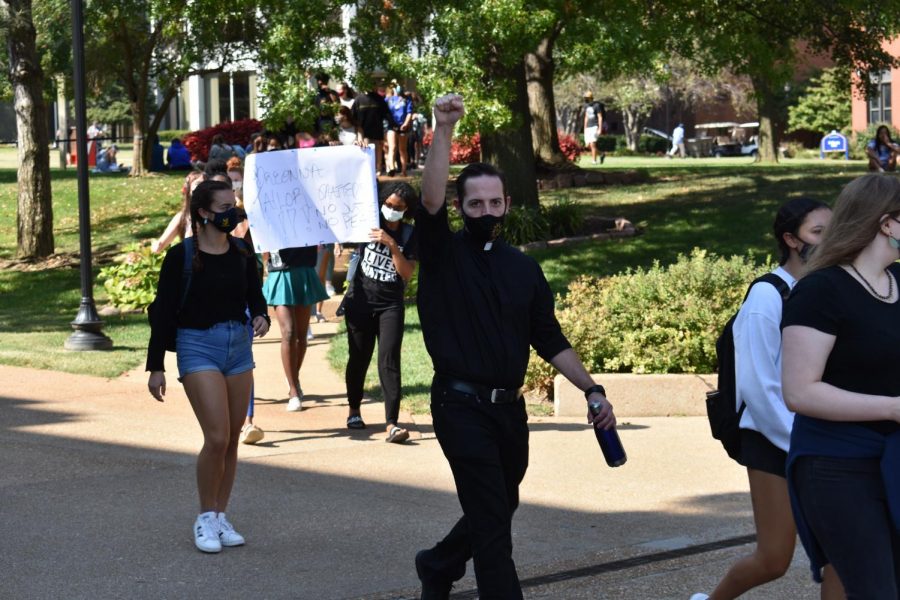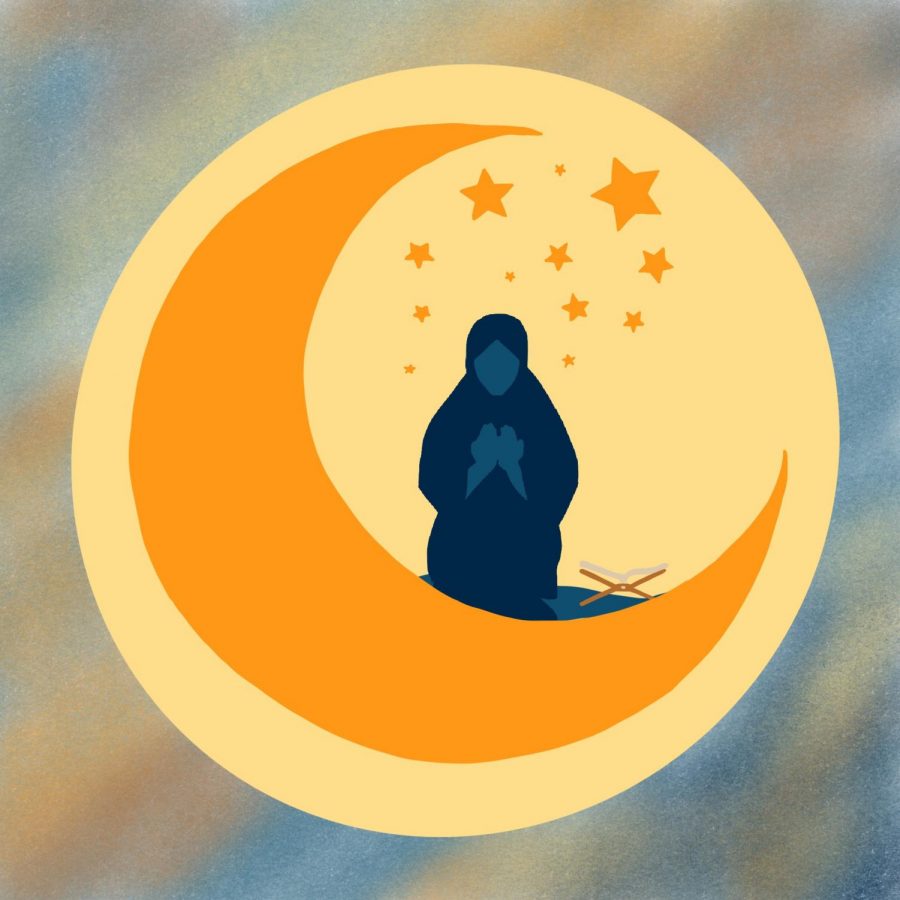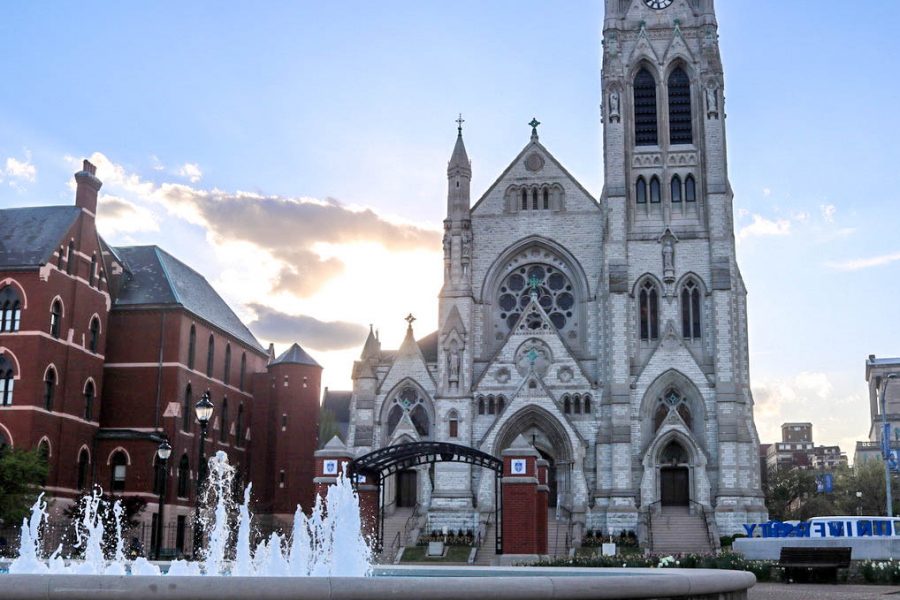A panel of five students, each representing a pillar of Islam, sat in front of an eager audience in Busch Student Center, during Atlas week. Imman Musa, a junior in the College of Arts and Sciences and Muslim Student Association (MSA) Co-President welcomed everyone attending the event.
Fauzal Rahman, a junior in the College of Arts and Sciences talked about the first pillar, the “Shahada.”
Rahman said “that (Shahada) means proclamation in Arabic, and by saying it you enter the fold of Islam.” She continued by explaining what exactly the proclamation is to students attending the event.
“All you have to say is I bear witness that there is no deity but God, and Muhammad is the Messenger of God,” Rahman said.
Freshman Junaid Yasin represented the second pillar — the Prayer.
“We pray five times a day; stretched over the whole day. One prayer at dawn, which is way before my eight am class, another at midday, the third in the afternoon, the fourth at sunset and the last at night.”
“Praying is a way of organizing our lives, and giving breaks to our day. You will feel the difference once you try it,” Yasin said.
The third pillar, fasting, was represented by sophomore Farrah Malik. The third pillar was explained as abstaining from food and drink, from dawn to dusk, for a month. “This is a way for us to feel for the poor and also spiritually cleanse ourselves,” Malik said.
Malik explained that there are some exceptions to this pillar since there are people who are not able to fast, like young children and the elderly. This exception extends to travelers, but travelers are required to make it up whenever they are able to. The fourth pillar, Zakat, meaning “increase in goodness” or “purify” in Arabic, was represented by Ziad Maqbool, a sophomore.
“Zakat is a certain fixed proportion of the excess wealth, 2.5%, given to the poor,” Maqbool explained. “Excess wealth means the portion of your wealth that you haven’t used in a year” Maqbool said. He also pointed out that there are 8 specific categories (recipients) of Zakat.
“It is a way for society to not have distinct classes, rather interact with each other, like brotherhood, and establish social justice,” Maqbool concluded. The fifth and final pillar, represented by Aalia Rahman, a sophomore, is Pilgrimage to Mecca/ Hajj. “If you have the means, either physical or financial, then you are obligated to perform Hajj/ Pilgrimage. But if you are in loan or have debts, then it is not permissible to do so until you are free of loans and debts,” Rahman said.
Musa thought hosting the event was important to Atlas Week and the SLU community.
“We were really happy to be a part of the “Religion 101” series hosted by IFA (Interfaith Alliance). We centered the event on the five pillars because they compose the foundation of Islam. While many students may have learned about the five pillars of Islam in their history or theology classes, we wanted to give a more personal view of how students actually live out these pillars in their daily lives,” Musa said.








Muslim scholar • Jan 11, 2019 at 4:53 am
May Allah reward for sharing such kind of knowledge of Islam that is also enhancing knowledge of people and their practice for seeking right path of Islam. https://www.ilyasqadri.com/
Muslim scholar • Jan 2, 2019 at 4:17 am
Islam is the religion of great festivity where each month come up countless blessing and another chance to grasp His (Allah) teaching to live better life a head. https://www.ilyasqadri.com/